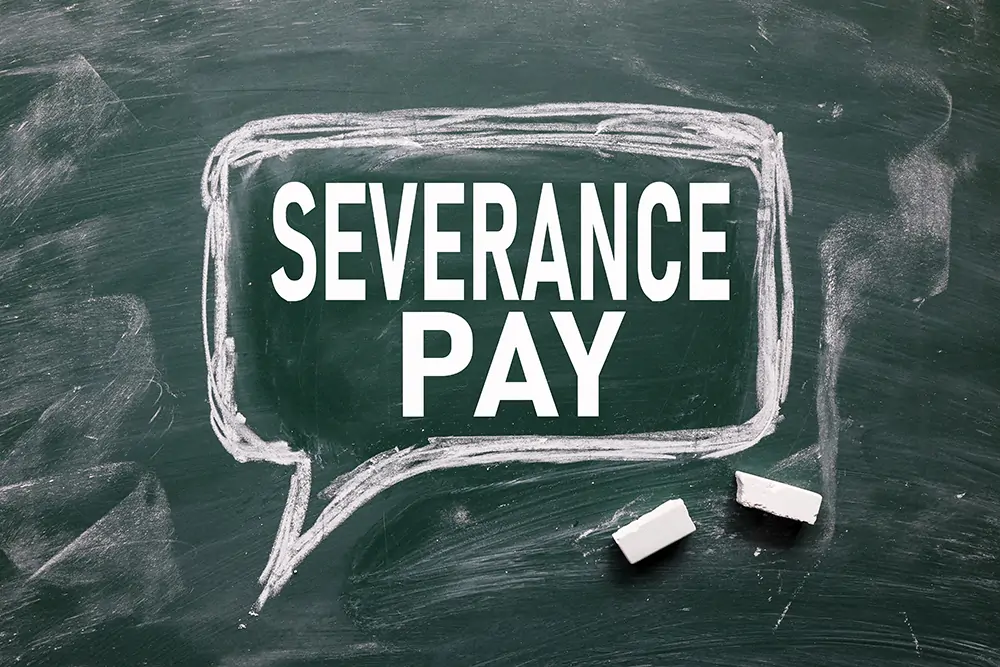Losing your job can be stressful and uncertain. Whether you’re entitled to severance pay after being fired depends on various factors, including the circumstances of your dismissal, your employment contract, and Ontario’s employment standards. This blog is intended to share details regarding severance pay, who qualifies for it, and how it’s calculated.
What is Severance Pay in Ontario?
In Ontario, severance pay is compensation provided to eligible employees upon termination of employment. It’s distinct from termination pay and is intended to recognize an employee’s long service with an employer and their investment in the company.
Who Qualifies for Severance Pay in Ontario?
Not all terminated employees in Ontario are automatically entitled to severance pay. According to the Employment Standards Act (“ESA”), an employee qualifies for severance pay if:
- They have worked for the employer for five or more years (including all time spent in employment, whether continuous or not, and whether active or not).
- Their employer:
- Has a global payroll of at least $2.5 million, or
- Has severed the employment of 50 or more employees in a six-month period because all or part of the business is permanently closed.
It’s important to note that employees terminated for just cause typically do not qualify for severance pay. However, the definition of “just cause” is narrow, and employers must meet a high standard to prove it.
How is Severance Pay Calculated?
In Ontario, severance pay is calculated based on the employee’s regular wages for a regular work week multiplied by the sum of:
- The number of completed years of employment
- The number of completed months of employment divided by 12 for a partial year
The statutory minimum severance pay in Ontario is one week’s pay per year of service, up to a maximum of 26 weeks. However, it’s crucial to understand that this is just the minimum requirement under the ESA.
Under common law, employees may be entitled to significantly more severance pay, potentially up to 24 months of pay, depending on factors such as:
- The employee’s age
- Length of service
- Position in the company
- Availability of similar employment
For example, if an employee earns $1,000 per week and has worked for the company for 10 years, their minimum statutory severance pay would be:
$1,000 x 10 = $10,000
However, under common law, they might be entitled to much more.
What if You’re Fired for Cause?
If you’re terminated for just cause, you typically don’t qualify for severance pay. Just cause usually refers to serious misconduct that fundamentally breaches the employment relationship. However, employers can’t simply label termination as “for cause” to avoid paying severance. The burden of proof is on the employer to demonstrate that the termination was indeed for cause.
Types of Dismissals in Ontario
Understanding the different types of dismissals is crucial when determining your rights to severance pay. In Ontario, there are several categories of dismissal:
- Termination Without Cause: This occurs when an employer ends the employment relationship for reasons unrelated to employee conduct or performance. Employees are entitled to reasonable notice or severance pay.
- Termination With Cause: Refers to dismissals due to serious misconduct (e.g., theft or gross insubordination). Employees typically do not receive notice or severance pay in these cases.
- Constructive Dismissal: This happens when an employer makes significant changes to an employee’s job without consent. Employees may claim constructive dismissal and seek severance pay.
- Layoffs: Temporary layoffs can become permanent dismissals if they exceed ESA time limits. If this occurs, employees may be entitled to severance pay.
- Wrongful Dismissal: This legal claim arises when an employee is terminated without proper notice or compensation.
- Frustration of Contract: This occurs when unforeseen events make it impossible for the employment contract to continue (e.g., permanent disability). Employers may not owe notice but could still owe severance pay.
- Resignation: While not a dismissal initiated by the employer, resignations can sometimes be treated as dismissals if forced by employer conduct (constructive dismissal).
Severance pay entitlement depends on the type of dismissal. Employees terminated without cause or experiencing constructive dismissal are typically entitled to severance pay. However, those fired for just cause may not receive any compensation. The specific circumstances of the dismissal greatly impact an employee’s right to severance pay in Ontario.
Negotiating Severance Pay
Even if you’re not legally entitled to severance pay under the ESA, there may be room for negotiation. Many employers offer severance packages that exceed the statutory minimum to ensure a smooth transition, maintain goodwill, or avoid potential legal disputes.
Takeaway
Understanding your rights regarding severance pay in Ontario can help you navigate the challenging period following job loss. If you’re terminated, it’s important to:
- Understand the reason for your termination.
- Review your employment contract and company policies.
- Know Ontario’s employment laws.
- Consider seeking legal advice, especially if you believe the termination was unjust or if you’re unsure about your entitlements.
By understanding your rights and options, you can ensure you receive fair treatment during this challenging time. We encourage you to contact Toronto employment lawyers at Sultan Lawyers online or by telephone at 416-214-5111 today.
Your Case: Our Priority.
At Sultan Lawyers PC, we are the only firm specializing exclusively in employment and immigration law. Whether your case is straightforward or complex, we have the experience and commitment to achieve the best possible outcome. Trust us to navigate the toughest challenges with you.



